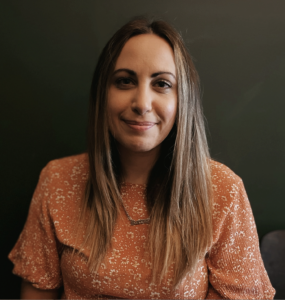Written by Kortney Melancon, Ph.D.
 When most people think of the periodic table, they remember a large poster hanging toward the front of a lecture hall. They might imagine a looming, asymmetric expanse of symbols that remained relevant from year one to year four. Even though this massive chart on the wall integrates other fields of science such as biology and physics, the connection between those disciplines was not immediately apparent. Most will remember this table with feelings of fascination, curiosity, and loathing. Reading the periodic table by its own set of grammatical rules reveals a whole series of new stories and laws of periodic assembly, all governed by electrons. I was a first-generation, non-traditional college student when I had my first encounter with chemistry. I could not have been more apprehensive, but I swiftly became captivated with how atoms fill their inner, low-energy levels as full as possible with their own electrons, then shed, steal, or share electrons in their outermost shell to achieve stability. Electrons not only constitute the organization of the periodic table, but their distribution also affects the behavior and reactivity of molecules.
When most people think of the periodic table, they remember a large poster hanging toward the front of a lecture hall. They might imagine a looming, asymmetric expanse of symbols that remained relevant from year one to year four. Even though this massive chart on the wall integrates other fields of science such as biology and physics, the connection between those disciplines was not immediately apparent. Most will remember this table with feelings of fascination, curiosity, and loathing. Reading the periodic table by its own set of grammatical rules reveals a whole series of new stories and laws of periodic assembly, all governed by electrons. I was a first-generation, non-traditional college student when I had my first encounter with chemistry. I could not have been more apprehensive, but I swiftly became captivated with how atoms fill their inner, low-energy levels as full as possible with their own electrons, then shed, steal, or share electrons in their outermost shell to achieve stability. Electrons not only constitute the organization of the periodic table, but their distribution also affects the behavior and reactivity of molecules.
In organic chemistry, we used chalk to push electrons around until they appeared precisely where we needed them. During the second year of my bachelor’s degree, I found myself in Dr. Todd Hudnall’s laboratory, pushing these electrons around in real-time, using molecules as building blocks for other molecules. The rules of organic chemistry that were merely arrows on a chalkboard were being applied to synthesize small and wonderfully complex ligands. I was enamored. I eventually found myself staying up late and getting out of bed before dawn to solve the complexities of chemical synthesis. Even though my destiny eluded me, I felt like I belonged for the very first time. Four years later, I was entering my first year of graduate school with the hopes of integrating the computational sciences with my knowledge of chemistry to study chemical processes and predict the properties of molecules. My Ph.D. work with Dr. Thomas Cundari focused on exploring computational methods to describe the electronic structure and reactivity of small molecule catalysts. This experience led into an internship with a pharmaceutical company, where I employed computational methods to study small molecule modulators of the Keap1-Nrf pathway for the prevention and treatment of oxidative stress-related diseases and conditions. This work elucidated the interactions of small molecules with proteins and opened my eyes to the intimate relationship between chemistry and drug discovery.
The shift from graduate school to a postdoctoral appointment afforded advancement as a computational chemist in the world of drug discovery. In January of 2021, I had the privilege of joining Jens Meiler’s laboratory as a postdoctoral researcher at Vanderbilt University. I work alongside experimental collaborators using computational tools in the Rosetta molecular modeling suite to aid in ion channel drug discovery. My time in the Meiler Lab continues to be an incredible opportunity to explore the chemical space of protein-protein and protein-ligand interactions and how these interactions are all based on pushing electrons. This position has been an immensely rewarding endeavor and has been enriched by the supportive and multidisciplinary network here at Vanderbilt University.
When I think of the periodic table today, I see an amalgamation of scientific disciplines. I imagine parts moving independently yet in concert with one another, moving towards a similar goal: developing drug therapies that treat human disease. To be a chemist is to be ubiquitous and subtly pervasive in the sciences. In the specialization that I have chosen, it is necessary to keep in mind that advances can only come about if these disciplines fuse into a continuum, encompassing all necessary steps in creating a new drug therapy.
When I’m not in the lab, you can find me exploring all that Tennessee has to offer, mostly in the form of camping, hiking, or attending live music shows.